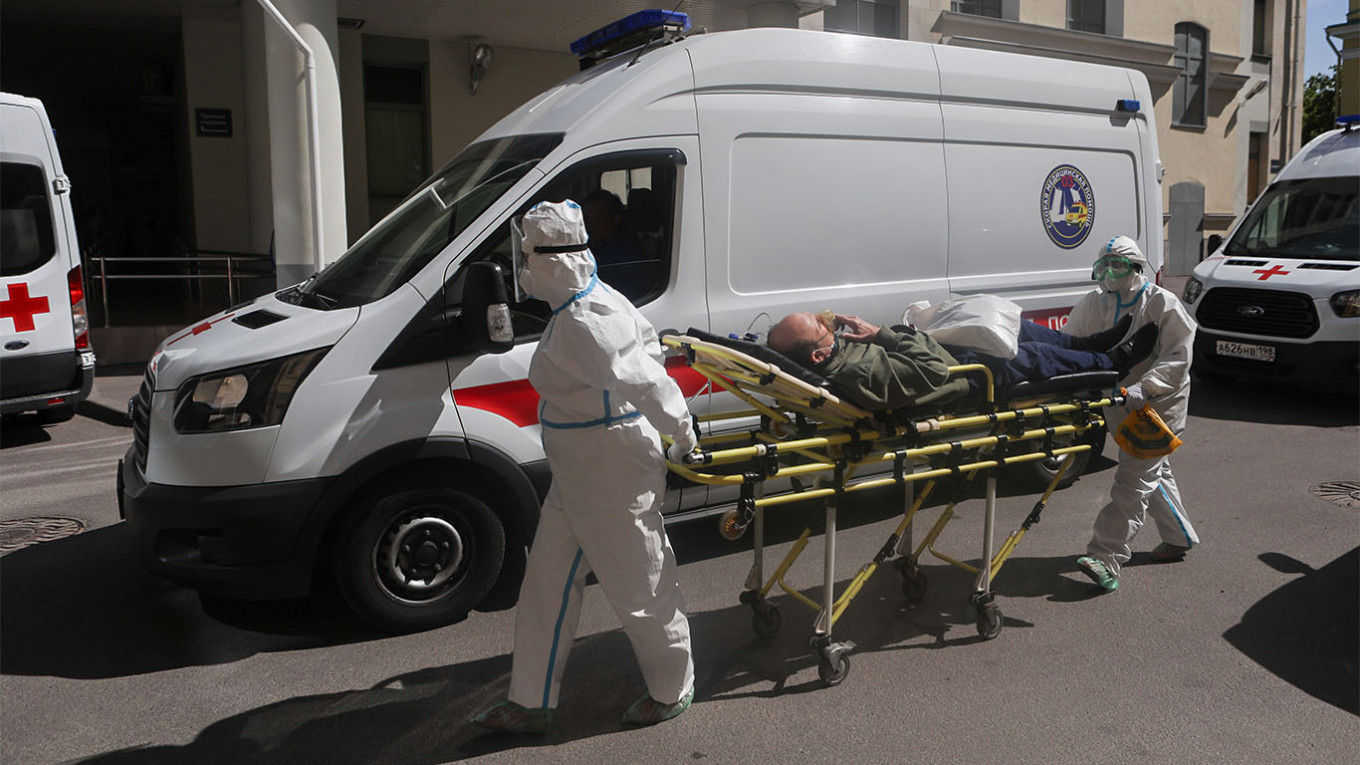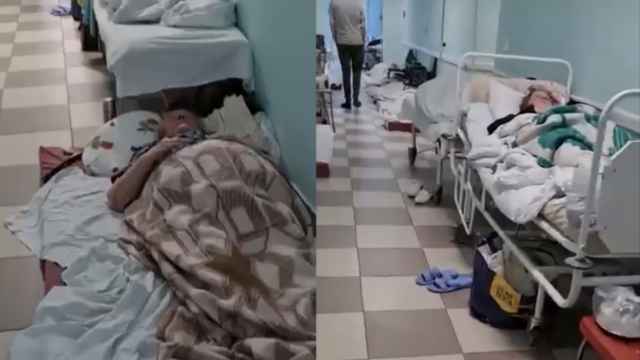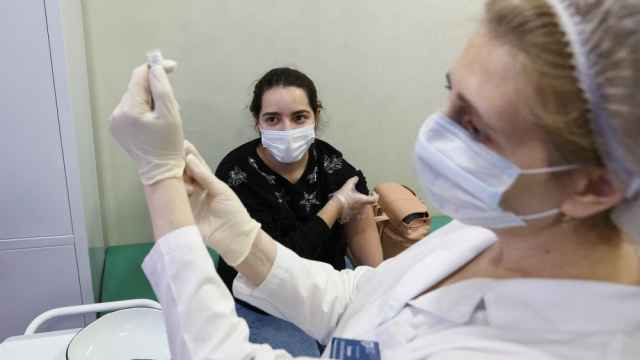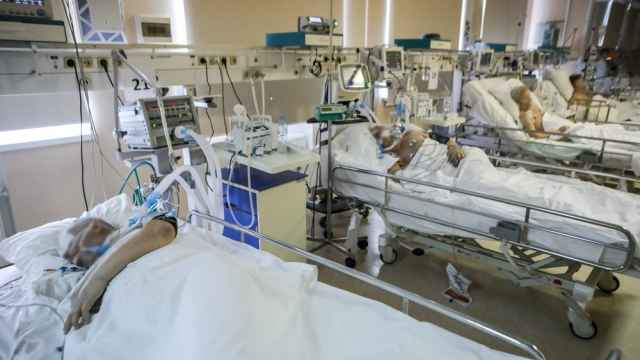Russia’s second-largest city of St. Petersburg has a shortage of hospital beds for coronavirus patients, the Fontanka news website reported Wednesday as patients decried poor conditions at a hastily built temporary hospital.
St. Petersburg has officially confirmed 19,769 coronavirus cases, a figure that according to Fontanka jumps to 30,000 when community-acquired pneumonia cases are included.
Fewer than 900 hospital beds, or 8% of the total number, were available in St. Petersburg as of Monday, Fontanka cited unnamed entrepreneurs who saw the data at closed-door meetings with officials as saying.
At least four hospitals reportedly had between 100 and 300 more patients than beds as of Wednesday, with two others close to capacity.
The hospital bed figures were “valid for the start of the week” but have since improved to 17% of beds free, deputy governor Yevgeny Yelin told Fontanka without explaining how the hospital beds were able to free up in two days.
Former patients have also complained of “worse than in prison” conditions at the temporary 1,500-bed hospital set up in a week at an exhibition center that used to host the St. Petersburg International Economic Forum.
A section of a roof was reported to have collapsed at the Lenexpo temporary hospital’s on-call room Tuesday, which local officials estimated would cost $6 million to repair.
Like Moscow, St. Petersburg began reporting fewer Covid-19 cases after President Vladimir Putin announced new dates for Russia’s landmark Victory Day parade and a public vote on constitutional reforms that would give him more years in power.
St. Petersburg governor Alexander Beglov has meanwhile suggested that businesses could reopen in three stages as soon as next Monday, according to Fontanka. Official guidelines recommend easing restrictions when hospitals are half full.
A Message from The Moscow Times:
Dear readers,
We are facing unprecedented challenges. Russia's Prosecutor General's Office has designated The Moscow Times as an "undesirable" organization, criminalizing our work and putting our staff at risk of prosecution. This follows our earlier unjust labeling as a "foreign agent."
These actions are direct attempts to silence independent journalism in Russia. The authorities claim our work "discredits the decisions of the Russian leadership." We see things differently: we strive to provide accurate, unbiased reporting on Russia.
We, the journalists of The Moscow Times, refuse to be silenced. But to continue our work, we need your help.
Your support, no matter how small, makes a world of difference. If you can, please support us monthly starting from just $2. It's quick to set up, and every contribution makes a significant impact.
By supporting The Moscow Times, you're defending open, independent journalism in the face of repression. Thank you for standing with us.
Remind me later.






